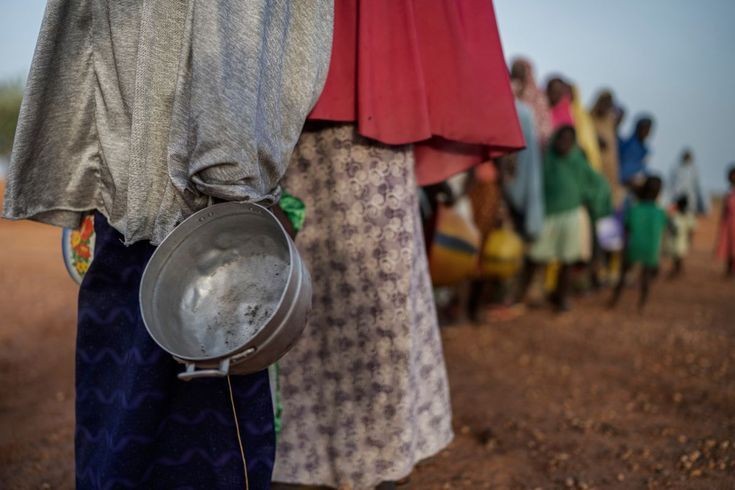UN Hotspots Report warns of imminent famine in Gaza, Sudan, Haiti, Nigeria, Mali, and South Sudan, highlighting urgent need for global action to prevent catastrophe.
In a chilling revelation, the latest Hunger Hotspots report by the UN’s FAO and WFP exposes a looming famine threatening Gaza, with acute food insecurity also escalating in Sudan, Haiti, Mali, and South Sudan. This alarming update underscores the dire need for immediate action to stave off starvation in these regions, with La Niña’s impending climate extremes poised to exacerbate the crises.
The Critical Hunger Hotspots
The report identifies 18 critical hunger hotspots where conflict, economic shocks, and climate extremes are pushing millions towards starvation. Gaza is at the brink, with over one million people facing death by mid-July unless hostilities cease and humanitarian aid is unfettered. Similarly, Sudan’s deteriorating food security situation, worsened by ongoing conflict, risks plunging millions into famine. “Once a famine is declared, it is too late – many people will have already starved to death,” warns Cindy McCain, WFP Executive Director .

Haiti’s food crisis is intensified by violent non-state armed groups, disrupting food supplies and displacing over 362,000 people. In Mali, the intensifying conflict and withdrawal of UN forces have escalated food insecurity to critical levels. South Sudan faces nearly doubled starvation rates between April and July 2024, exacerbated by floods, currency depreciation, and subnational conflicts .
Climate Change: The Unseen Catalyst
The report highlights the significant impact of climate change, transitioning from El Niño to La Niña, which could bring severe floods or droughts. This climate volatility threatens to destabilize already vulnerable regions further, demanding continuous monitoring and proactive measures. “We need to spearhead the shift from responding to crises to anticipatory approaches, prevention, and resilience building,” emphasizes FAO Director-General QU Dongyu .
The Path Forward: Proactive and Integrated Solutions
To combat these crises, the report advocates for immediate, scaled-up humanitarian actions, particularly in the most affected regions like Gaza, Sudan, Mali, and Haiti. It calls for balanced emergency agriculture alongside food and cash assistance to reduce dependency on aid and foster resilience. “We have proven solutions to stop these crises in their tracks, but we need the resources and the political will to implement them at scale before more lives are lost,” urges McCain .
This harrowing report serves as a wake-up call, demanding swift and sustained global action to prevent these hotspots from igniting a firestorm of hunger and death. The world must heed these warnings and commit to a proactive, integrated approach to alleviate hunger and build resilient communities.
